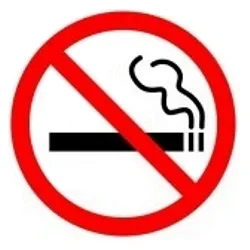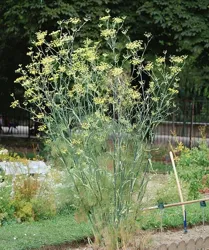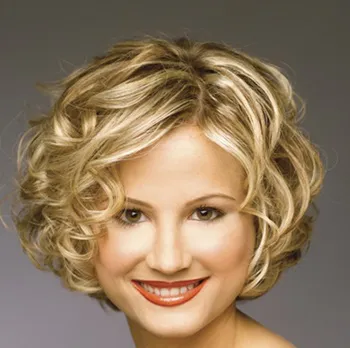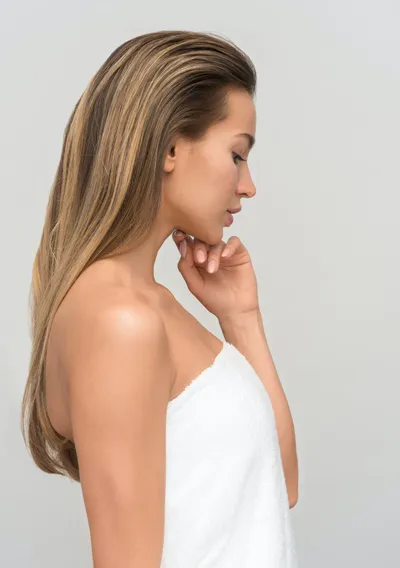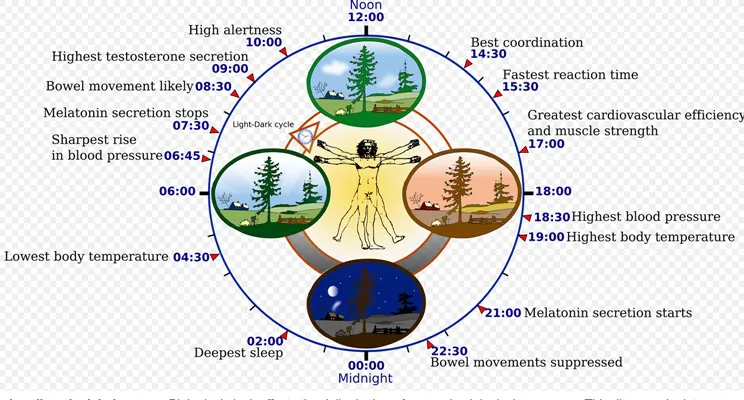
Can Stinging Nettle Stop Hair Loss?
Does Apple Cider Vinegar Reduce DHT?
The theory behind using apple cider vinegar (ACV) for hair loss in combination with stinging nettle is that it treats the condition in three ways:
- Eliminates scalp buildup
- Removes DHT (which is similar to stinging nettle)- Balances pH
Proponents of ACV scalp rinses insist that it opens up the follicles so they can flourish and grow. Or regrow thinning or lost strands.
Recipe For Dull Hair Without Luster Or Shine
The following Nettle Hair Rinse recipe is taken from An Astrological Herbal for Women by Elisabeth Rooke. Be sure to use organically grown nettle tops to avoid wild hers, which may have been treated with herbicides. Roadside nettle may have toxic roadside emissions.
 Wet Wash Hair - HB Media - All Rights Reserved
Wet Wash Hair - HB Media - All Rights ReservedFollow the instructions listed below.
Nettle Hair Recipe
Use two handfuls of fresh organic nettle tops or leaves.Simmer tops or leaves slowly overheat in 1.2 liters (2 pints) of apple cider vinegar (DHT blocker) and distilled water.
Allow the nettle to simmer for two hours.Remove from the heat.
Allow the mixture to cool. Strain to remove all nettle tops to have only liquid.Pour the remaining liquid into a dark glass bottle. Store in a cool, dry place.
Directions
Saturate the scalp using a clean cotton ball. with the nettle mixture once a week.
This rinse is safe for color-treated hair. It helps to reduce DHT or inflammation on the scalp and roots.Wrap hair in plastic wrap or a shower cap to contain the liquid on the scalp.
For the best results, allow the nettle to remain on the scalp overnight.Be sure to protect the bedsheets or pillowcases from staining.
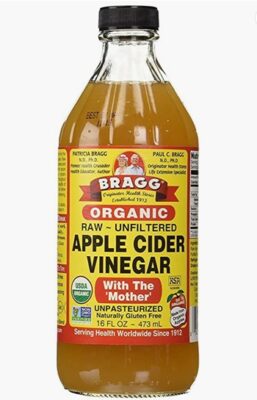 BRAGG Organic Raw Apple Cider Vinegar, 16 Ounce - Amazon
BRAGG Organic Raw Apple Cider Vinegar, 16 Ounce - AmazonOr, if the nettle solution is too drying, wash hair and scalp in lukewarm (not hot) water after applying.
Add a rinse-out conditioner to restore hydration. The nettle may be somewhat drying.
Continue to apply the nettle formula to your scalp for 30-60 days.
Another way to consume nettle to diminish DHT is to drink a cup of nettle tea every day in the morning.
Stinging Nettle Properties
Stinging nettle has antimicrobial properties. Also, antioxidant, strengthening, and anti-inflammatory agents.
A nettle rinse may trigger hair growth. It could be helpful for anyone with hair loss or thinning—especially those who want a drug-free solution.
It's an all-natural solution. But, it may be significantly less effective than utilizing available medical solutions (Minoxidil or Propecia).
Most people may prefer taking a natural DHT blocker like nettle. Synthetic drugs are far more effective in regrowing hair, but with the possibility of troubling side effects.
Summary - Can Stinging Nettle Stop Hair Loss?
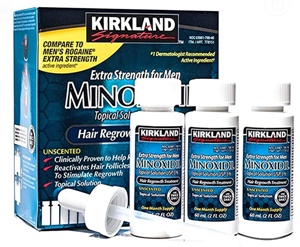 Kirkland Minoxidil Hair Loss Topical Treatment
Kirkland Minoxidil Hair Loss Topical TreatmentStinging nettle has antimicrobial and antibacterial properties. Both may improve scalp conditions.
Research has shown nettle may show stronger antibacterial activities than synthetic antimicrobials. It also has helped to block DHT and inflammation.
Nettle may prevent hair loss by blocking DHT. It's a precursor to testosterone, the culprit in androgenetic hair loss.
Is a rinse enough to make a difference? More studies are required.
Best wishes to all.
Warning: I am not a doctor. Consult your physician before taking nettle either orally or as a topical solution. It may interact with any other medications. Avoid nettle during pregnancy. It has the potential to trigger contractions. This herb may contain significant amounts of Vitamin K. This may interact with diuretics or diabetes medications.
Hairboutique.com nor I have any financial, business, or affiliation with any products mentioned in this blog.
References
Urtica dioica , often known as common nettle, burn nettle, stinging nettle (although not all plants of this species sting) or nettle leaf, or just a nettle or stinger.Social Media Network Information
Please follow us on Twitter at: https://Twitter.com/HairBoutique. I look forward to meeting new people from all walks of Twitter and learning from their Tweets.


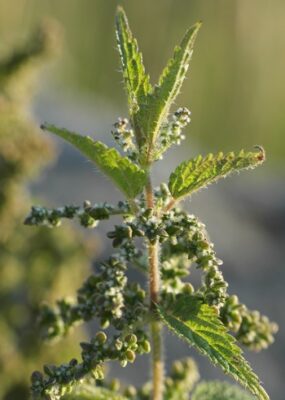 Urtica dioica - Skalle-Per Hedenhös - Own work
Urtica dioica - Skalle-Per Hedenhös - Own work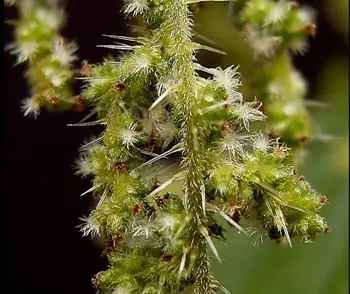 Nettle flowers (female) can be green and white
Nettle flowers (female) can be green and white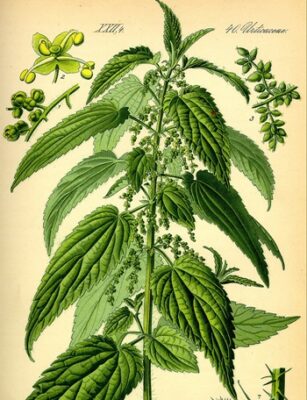 Illustration by Otto Wilhelm Thomé (1885)
Illustration by Otto Wilhelm Thomé (1885)

